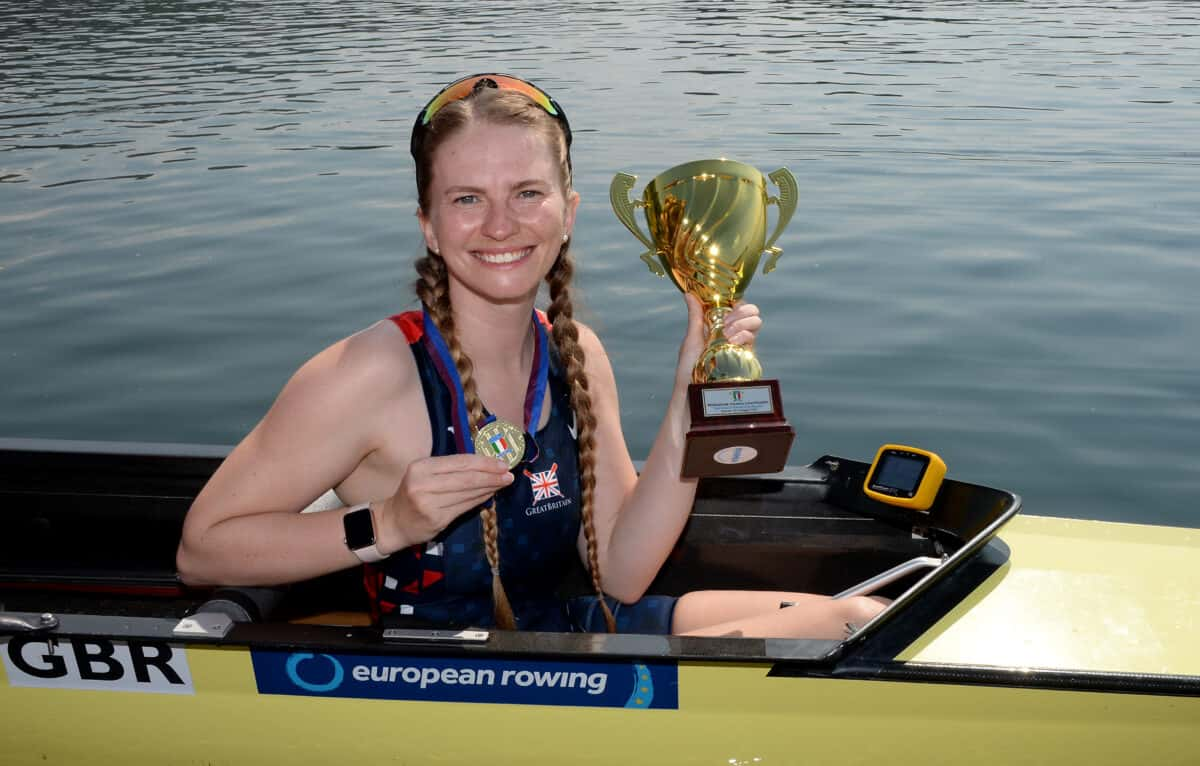
27 Jun 2022
Cancer diagnosis brings extra drive to GB coxswain Kennedy
Great Britain’s PR3 coxed four completed the full set of international para-rowing gold medals with another dominant win at the 2022 World Rowing Cup I a few weeks ago.
It would have been an emotional moment for anybody, but for coxswain Erin Kennedy the victory was particularly meaningful. Just four days before the final, the 29-year-old was diagnosed with breast cancer.
Kennedy opened up about the diagnosis on her social media accounts last week, saying that by talking about the illness she hopes to raise awareness of breast cancer and the importance of early detection.
Kennedy has a family history of breast cancer, so is used to checking her breasts and had previously found two benign lumps. On a training camp before the Gavirate International Para-Rowing Regatta she found another, and her diagnosis came on the day the British team were flying out to compete at the 2022 World Rowing Cup I.
The next day, Kennedy was on the plane to Belgrade to join them.
“It was something that I’d discussed in advance with my coaches and the team that if it was bad news I would still want to compete. I didn’t know and I don’t know if I can keep racing during this treatment and recovery phase,” she says.
Kennedy says it was important for her to race in Belgrade, with the focus on winning the four’s first World Rowing Cup medal.
“I was really strict with my teammates and friends, saying that essentially I don’t want to be asked if I’m okay, I don’t want the hugs, I want to focus on the job at hand,” she says.
Kennedy has triple negative breast cancer, which is increasingly common in younger women and responds well to chemotherapy. She begins treatment in a couple of weeks but is continuing to train at the British Rowing centre in Caversham, England.
“All of a sudden, my timelines have shifted in quite a significant way, and I’m living on a weekly basis. The way I’ve found it best to manage that in my head around appointments, scans and decisions is to come to training, do what I enjoy, have breakfast with the team, and have normal conversations about catches and should we change the footplate,” she adds.
Being open about the diagnosis is key, Kennedy says.
“Cancer, I’ve learned, is a team sport. It’s not just me trying to sort this out on my own. I’ve been really overwhelmed by the people who’ve reached out, the conversations I’ve had with people in the rowing community both here and abroad,” she says.
Kennedy says it is vital for young women to be body conscious. She recommends the awareness campaign run by UK charity CoppaFeel to remind women of the importance of early detection, which improves recovery chances hugely.
Although she does not know how she will respond to her treatment, Kennedy is hoping she will be able to race at the European Championships in Munich in August, and long-term, she is targeting the Paris 2024 Olympic Games.
“I’d like to be in every single race between now and Paris, but my health needs to be a priority,” Kennedy concludes.

